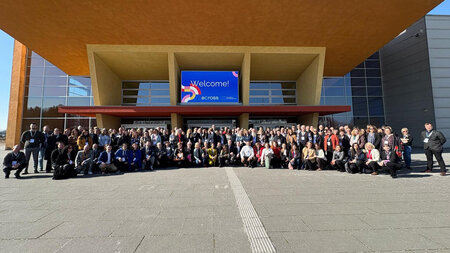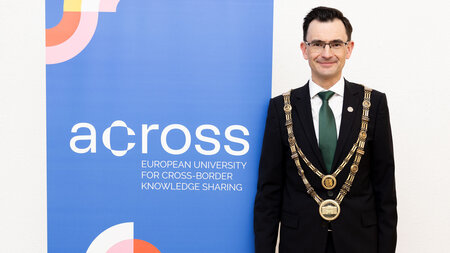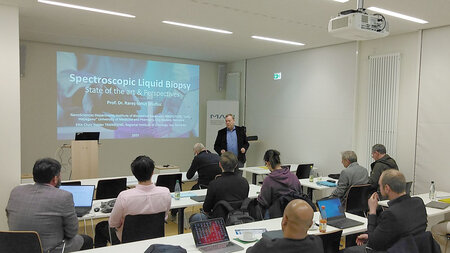Sensor-supported early diagnosis in dementia
Kick-off event for EU funded project “SENDA” takes place on December 13, 2017
-

The in the “SENDA” project involved junior researchers. From left to right: Jyothsna Kondragunta, Maria Fernanda Agoitia Hurtado, Louisa Brich, Clara Paulus, Katrin Müller, Andresa de Castro Germano. Photo: private
Against the background of increased life expectancies and an ageing society, dementia represents an urgent topic of the future. The German Alzheimer Society e.V. predicts a number of three million dementia cases in Germany until 2050. Thus, an early diagnosis is of particular societal relevance and precondition for an optimal treatment.
For this purpose, the interdisciplinary research project “SENDA” for sensor-supported early diagnosis in dementing age-related diseases is prepared on behalf of the European Social Funds (ESF) and the Free State of Saxony at Chemnitz University of Technology. On December 13, 2017, the project enters its hot phase. The Kick-off event marks the start of the project and takes place in the auditorium building at Reichenhainer Straße 90, room NK003, from 2 to 3.30 p.m.
Objective of the event is the communication of information on the research project. Furthermore, cooperation partners from the healthcare sector are looked for, to recruit test persons. The event is organized by the in the project involved junior researchers (see photo) of the Chemnitz University professorships Sports Psychology, Human Locomotion, Digital Signal Processing and Circuit Technology, as well as Analysis around project leader Prof. Claudia Voelcker-Rehage (Professorship of Sports Psychology).
Dementia is becoming an important research topic of the future
Objective of SENDA is to identify factors in the fields of motor skills, sensors, and cognition. These can predict the occurrence of dementing age-related diseases. “Scientific findings show, that biological dementing modifications already take place long before first clinical cognitive symptoms appear, such as word finding disorders or memory impairments”, says Prof. Claudia Voelcker-Rehage. So, evidence exists, that changes in motoric skills, such as the walk or finer motor skills, could indicate the development of cognitive impairments. Prof. Thomas Milani (Professorship of Human Locomotion) additionally emphasizes: “An early diagnosis of alterations in the balance control, foot coordination, or skin sensibility are also significant indicators.”
Further information are available from Dr. Katrin Müller, phone +49 371 531 33045, email katrin.mueller@hws.tu-chemnitz.de
Matthias Fejes
12.12.2017





